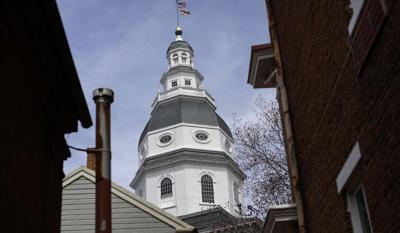MARYLAND - The prospect of Marylanders' taxes being raised seems to be rising. The state is facing a nearly three billion dollar budget shortfall.
The Governor and State House leaders have often shied away from any talk of tax increases. That is until recently, when Senate President Bill Ferguson said "everything is on the table" when it comes to tackling the $2.7B deficit in the next fiscal year. A recent analysis found that number balloons to nearly $6B over a five year period.
Ferguson says the next legislative session will be focused on making cuts and adjustments, but also considering "altering revenue policies."
Last year, lawmakers stopped short of an outright income tax increase, but did increase a number of fees, like for vehicle registration and tobacco products.
State Senator Mary Beth Carozza, a Republican representing Wicomico, Worcester and Somerset Counties says Marylanders cannot afford tax increases.
"The concern is that you'll have those that typically come back and they'll have proposals to raise taxes. And that's the last thing we should be doing with our economy right now," she said.
A spokesperson for Governor Wes Moore said in a statement to WBOC in part "The Moore-Miller administration has a high bar for increasing the tax burden on Maryland families, and the governor knows the next leg of the mission to address our fiscal challenges will be harder than the last."
Bill Chambers with the Salisbury Area Chamber of Commerce says tax increases would especially hurt the Shore's business community.
"We have dug ourselves into this $2.7B hole and I know what the Governor has said and the Senate President and other leaders have said, but they're not going to cut their way out of this deficit," he said.
"To the detriment of the business community, I think we're going to be bearing the brunt of a lot of fees and tax increases that the General Assembly is going to be forced to impose," Chambers continued.
Analysts say the biggest contributor to this budget shortfall is spending on the "Blueprint for Maryland's Future," the state's education plan.
This possibility of tax increases comes as a statewide poll by the University of Maryland Baltimore County finds nearly 70 percent of Marylanders view the economic conditions in the state as "poor" or "fair."
Maryland lawmakers return to session on January 8 in Annapolis.






